9 'Healthy' Habits That Make It Almost Impossible to Lose Weight
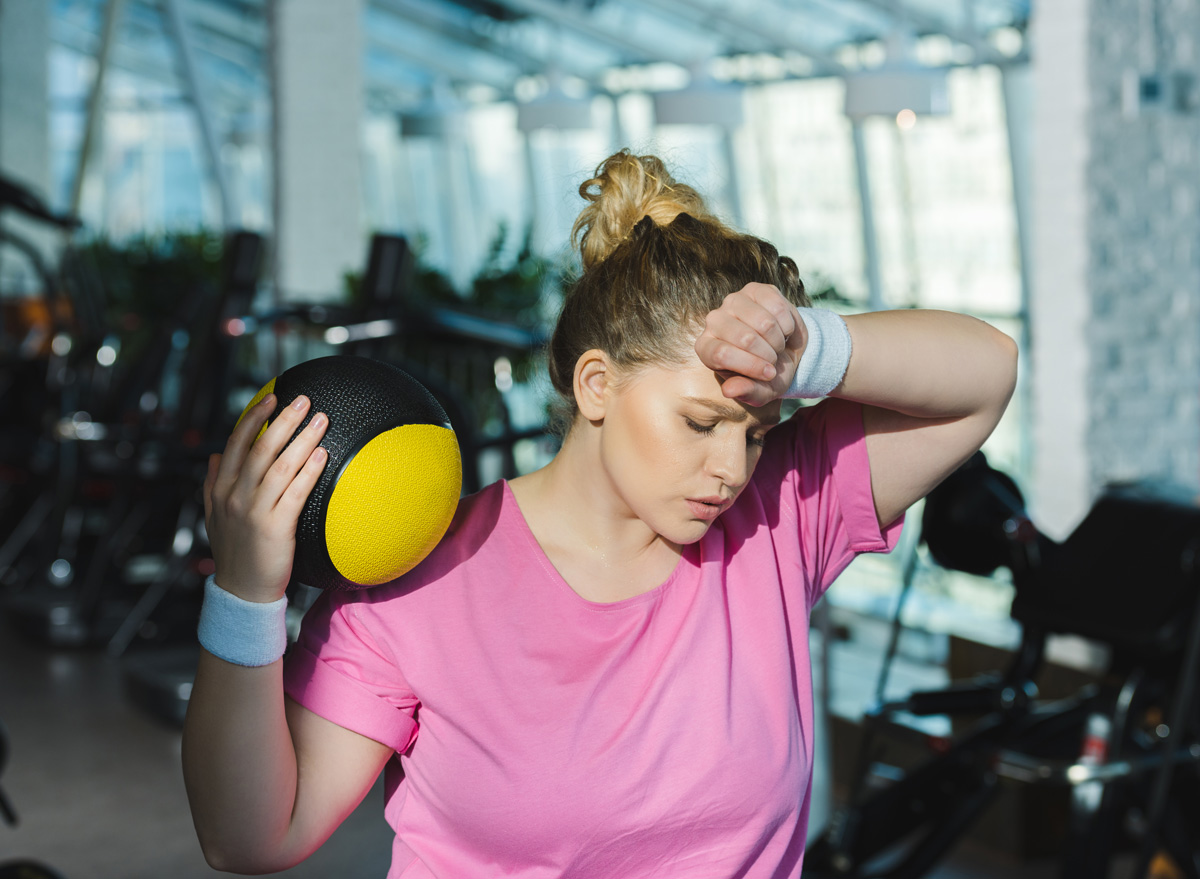
So, you've been dieting and exercising like crazy, yet that pesky number on your scale still won't go down. Even if you're doing all the right things—choosing healthy snacks, cutting out sugar, slashing calories—you might be doing it all wrong. You may not realize it, but some everyday food and exercise habits could be seriously sabotaging your weight-loss efforts.
We've identified some of the biggest culprits that you need to cut out ASAP to finally see those results you've been working so hard for. Read on, and for more on how to lose weight, you won't want to miss The Best Ways to Lose Belly Fat for Good, Say Doctors.
Going Sugar-Free
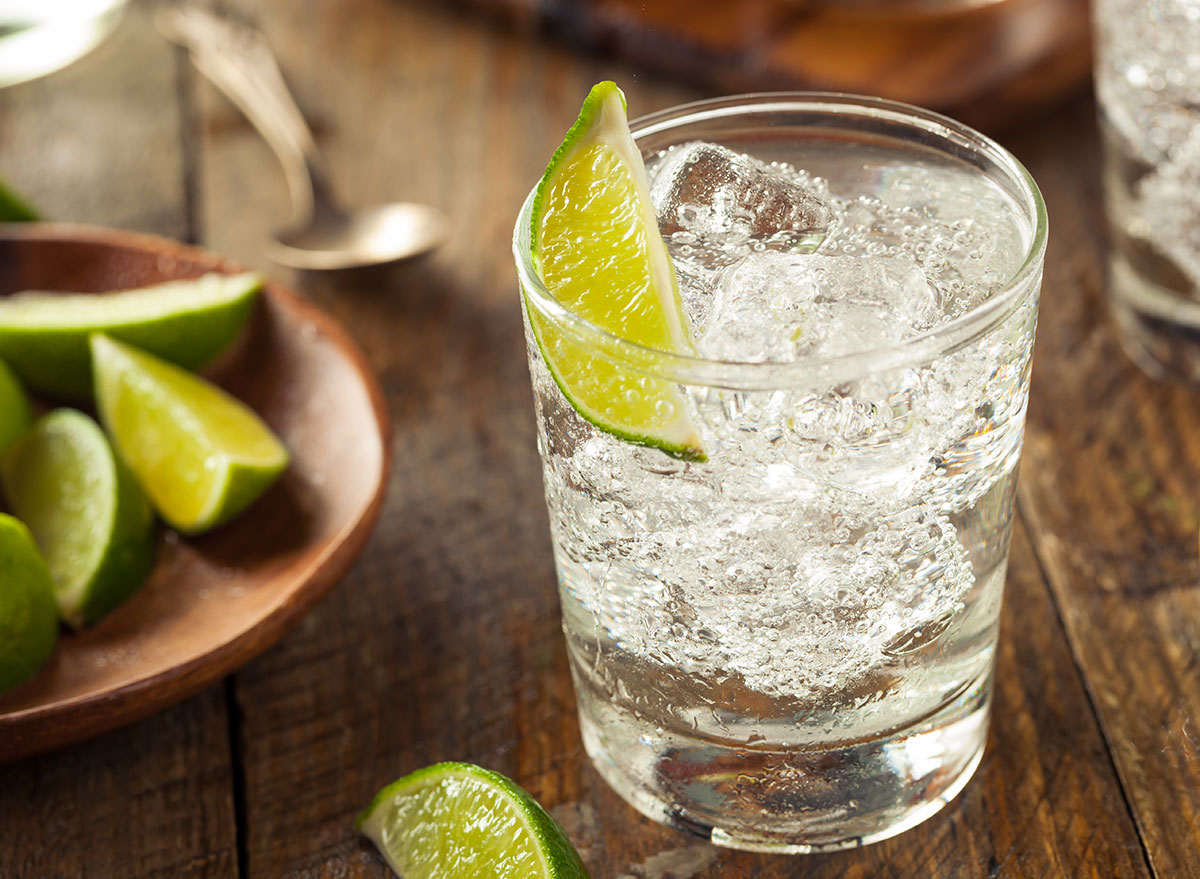
Just because something says "sugar-free" on the label does not automatically make it a healthy choice. Many of these products aren't exactly what they claim to be: they contain artificial sweeteners that could actually lead to weight gain. A Canadian Medical Association Journal review of 37 studies, which analyzed the habits of nearly 406,000 people, discovered that non-nutritive sweeteners such as aspartame, sucralose, and stevioside aren't effective for weight loss may, in fact, be associated with weight gain and cardiometabolic risk if consumed regularly. You're better off ditching sweetened beverages altogether.
Over Eating 'Healthy' Snacks
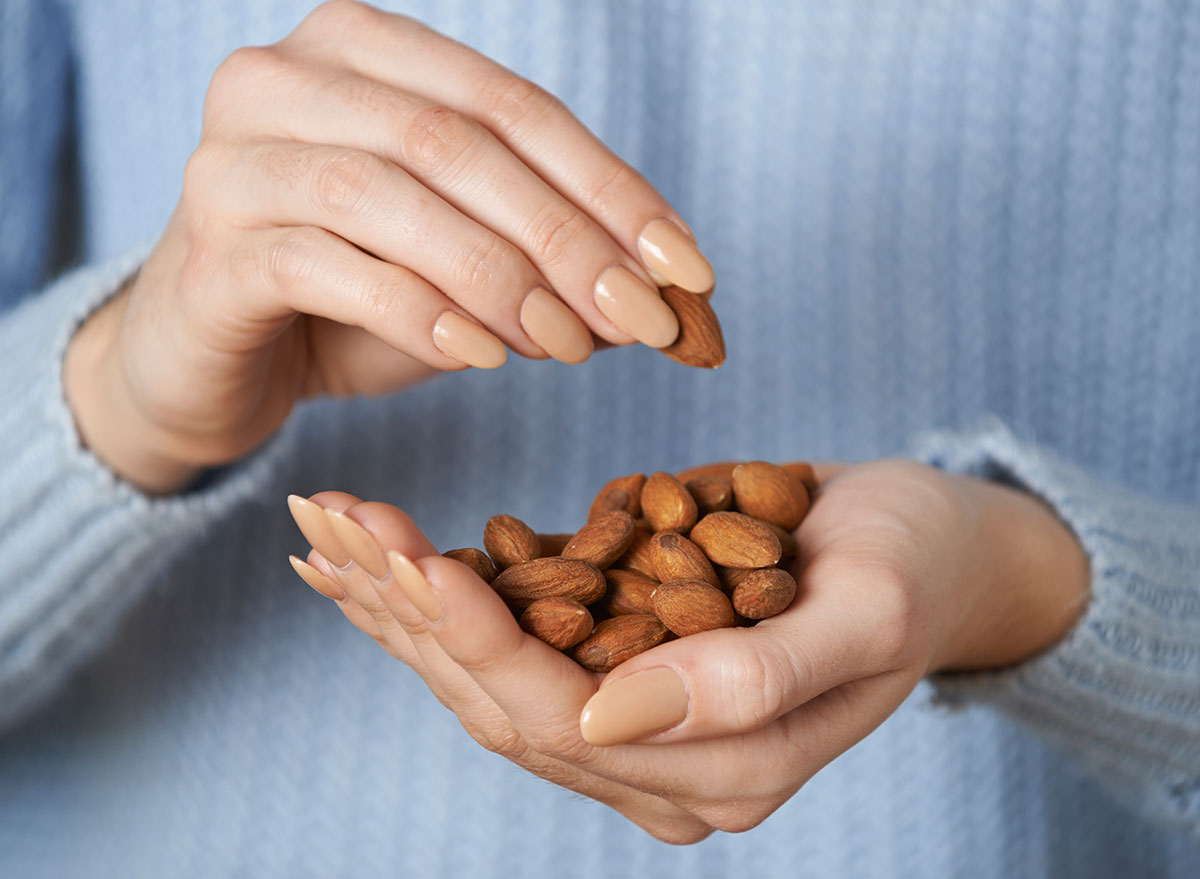
Moderation plays a huge factor in weight loss, no matter what you're eating. Even if you're eating a protein bar over cookies, watching how much you eat is just as important, if not more so, than what you're eating. Although almonds and avocados are healthy superfoods, they are still calorie-dense, so it's possible to go overboard on your daily calories if you're not sticking to the proper serving size.
Plus, people tend to overdo it on packaged foods that are labeled healthy, according to a report in the Journal of the Association for Consumer Research. People may associate healthy food with being less filling, so they load up on snacks they think are better for them, which translates to them blowing through their calorie budget for the day.
Cutting Out Meals

With moderation being said, you also don't want to limit yourself too much. According to the Calorie Control Council, 17 percent of Americans make the huge mistake of skipping meals to lose weight. Cutting out meals can actually cause you to gain weight. It sounds contradictory, but it makes tons of sense: when you restrict your calories too much, your metabolism starts to slow down.
According to Jim White, RD, ACSM, and owner of Jim White Fitness Nutrition Studios, you shouldn't eat less than 1,200 calories a day. "When you're not eating enough calories, your metabolism can slow down, you don't have enough energy for workouts, and you're more likely to binge eat," he told us. To keep yourself satisfied throughout the day without overdoing it, try eating some of our favorite high protein snacks.
Cutting Down On All Fats

It's time to kill the myth that all fats are bad for you. Yes, trans fats can do some major damage to your health and body, but you can't cut out all fats from your diet. Foods like nuts, avocados, and salmon all contain healthy fats that can actually help you in your weight loss journey. "Fats not only help us absorb many of the vitamins from our diets, but they also help keep us fuller longer, which can aid weight loss efforts," said nutritionist Lori Zanini, RD, CDE. So, do your body a favor and keep the healthy fats on your plate (in moderation, of course).
Living At The Gym
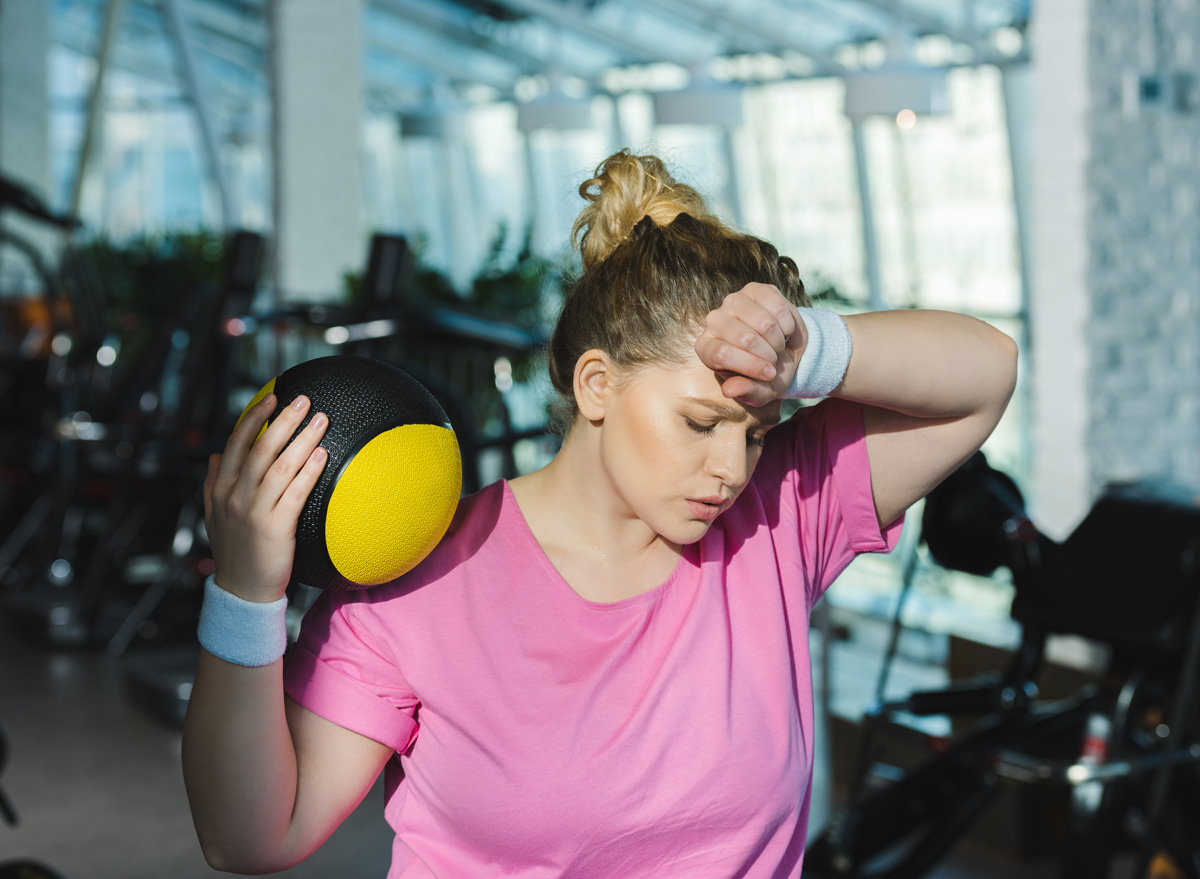
Making sure you get your exercise in is essential to losing weight, but overdoing it is not in your best interest. Celebrity fitness and nutrition expert Jay Cardiello noted that if you're obsessively working out, you're not giving your body enough time to recover and rebuild. This can actually increase your risk of injury and cause you to stay out of the gym for a few weeks, leading to weight gain. To make sure your body is fully recovered, Cardiello recommends taking one or two days off from the gym per week; your body will thank you for it.
Avoiding Dessert

Moderating your daily sweet treats is definitely a good thing, but cutting them off completely may put you in the wrong direction for weight loss. In fact, Israeli researchers found that eating a sweet treat with breakfast can help you lose weight. Patrons of the study who ate something sweet with their breakfast actually lost more weight and kept off more pounds than those who did not. But, that doesn't mean you should eat two slices of cake for breakfast—a piece of dark chocolate (we recommend at least 70% cocoa) should suffice.
Sticking To The Same Workout Routine

Yes, working out is important, but doing the same exercises over and over again for weeks at a time will do nothing for you. "If you've been doing the same workout for the past few months, your body isn't being challenged anymore, meaning it's not burning as many calories as it otherwise could," explains Sean M. Wells, personal trainer and owner at Nutritional Physical Therapy and author of Double-Crossed: A Review of the Most Extreme Exercise Program. So, if you're usually kickboxing, try switching it up and take cycling classes instead. But, if you're so dedicated to your workout classes, try taking a more intense class!
Eating Gluten-Free Diet When You Don't Have To
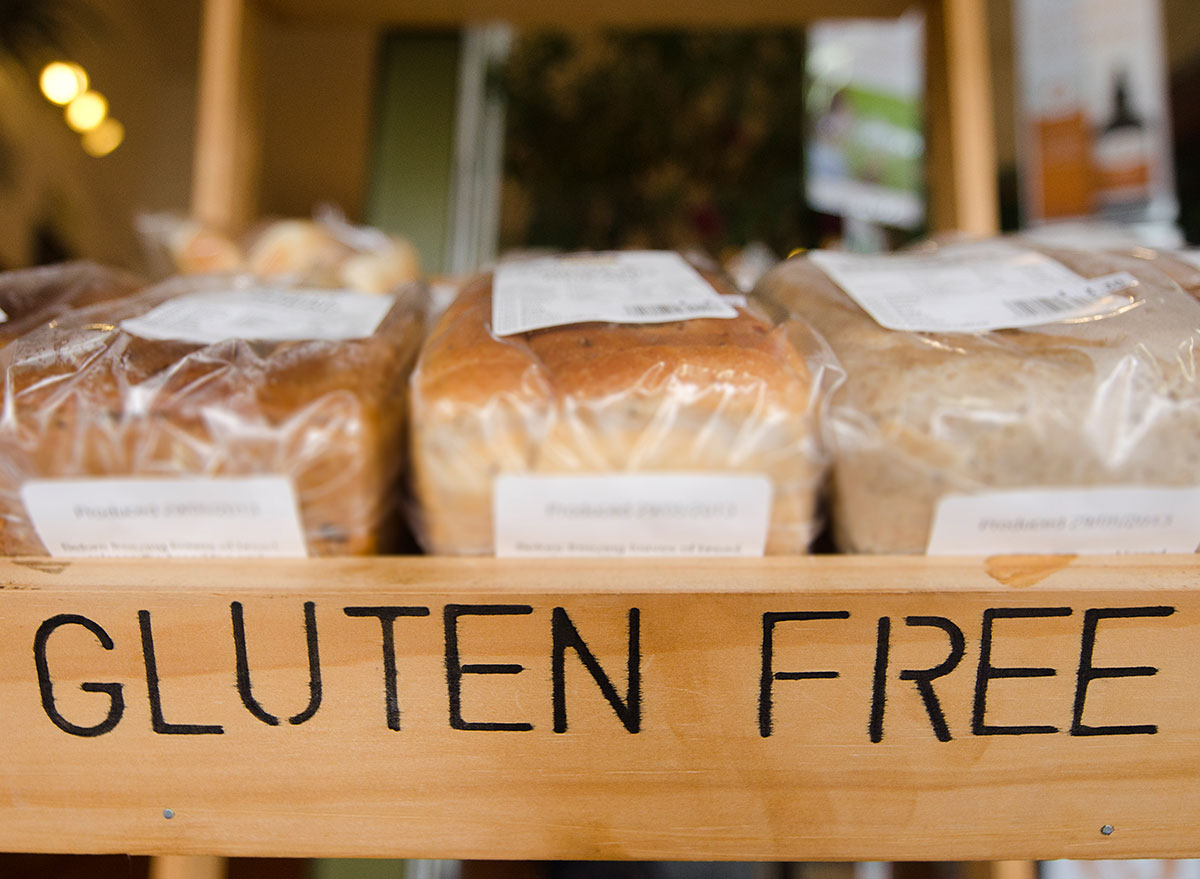
A gluten-free diet is great if you actually can't digest gluten like people with Celiac Disease or other gluten sensitivities. But, if your body can handle gluten, sometimes going for the gluten-free label isn't in your best interest. It turns out that many of these gluten-free foods can contain more carbs than the regular stuff. Most gluten-free breads are made from refined grains, with white rice flour being the most popular. Oftentimes, GF breads have double the carbs of whole-wheat breads. And, a study by the American Society for Nutrition has shown that people who eat whole grains have less belly fat than those who eat refined grains. So, eating whole grain products can actually be beneficial for your diet.
Related: 5 Major Mistakes You're Making on a Gluten-Free Diet
Packing On The Protein
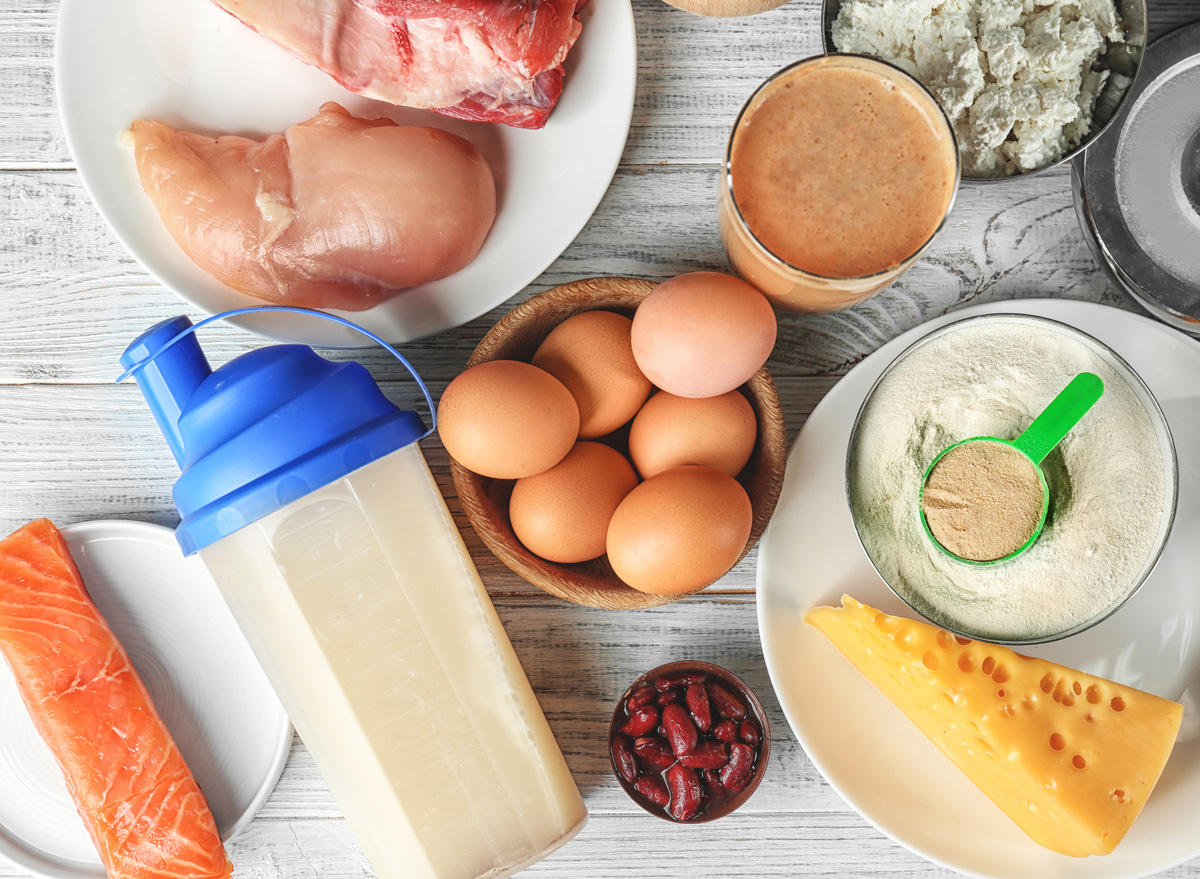
Although protein can help you feel full and build lean, calorie-burning muscle, it's possible to have too much of a good thing. Overdoing it on protein will mess up your weight loss journey because consuming too much of any macronutrient when your body doesn't need it can lead to excess calories being stored as fat. A 7,000-patron study published in the journal Clinical Nutrition showed that those who ate high-protein diets had a 90 percent greater risk of gaining more than 10 percent of their body weight during the course of the study in comparison to those who ate within the recommended amount.
White recommends sticking to a specific formula of how much protein to eat a day for weight loss. "In order to gain muscle for athletes and lose weight, it is recommended by the Academy of Nutrition and Diabetics to consume 1.2 – 1.7 grams per kilogram of body weight," he says. So a 150-pound person needs about 81-115 grams while someone who's 180 pounds needs 97-138 grams. If you're less active or not looking to build lean muscle, the numbers could actually be less, around 50 grams total a day. If you need inspo on what to eat, check out our list of 29 Best-Ever Proteins for Weight Loss.








